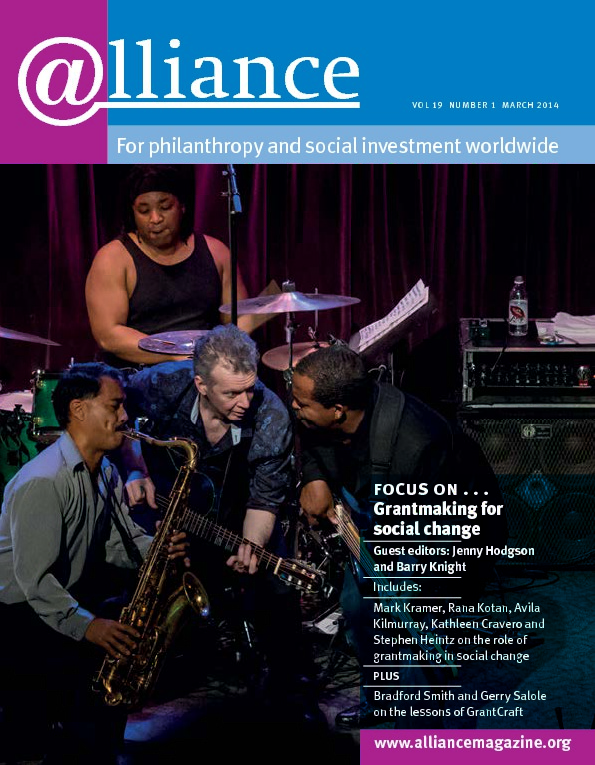In the December edition of Alliance, Jason Franklin suggests a definition of next gen donors as ‘young donors from their early twenties to early forties’. One thing the issue does not mention is that this is a generation marked by a systemic breakdown in accountability and ethics which led to what many economists consider the worst financial crisis since the Great Depression of the 1930s. This is an event that might change the path of the next gen into creating a brighter future, into making the future different from what we experienced in 2008. By incorporating personal values into businesses and balancing philanthropy with other activities, companies and philanthropy will be transformed.
Moreover, next gens have the power of technology to communicate and extend their reach. The non-profit sector has also evolved and we now have many more organizations (and much more literature) that focus on attacking root causes – one of the demands of the next generation, according to Jason Franklin.
However, when it comes to talking about Brazilian next gen donors, we have to broaden his 20-40 age range to include those who are new donors not because of their age but because they now have the resources to give and awareness of the need to do so.
In that sense, a ‘next generation of donors’ for Brazil, and potentially for other emerging economies, means more than those in a certain age range; it means a great part of society – young, middle-aged or old – that can be transformed into donors. It’s hard, we know. But the success of meetings such as the Brazilian Philanthropy Forum makes us optimistic.
Paula Fabiani
Executive director, Institute for the Development of Social Investment, Brazil






Comments (0)